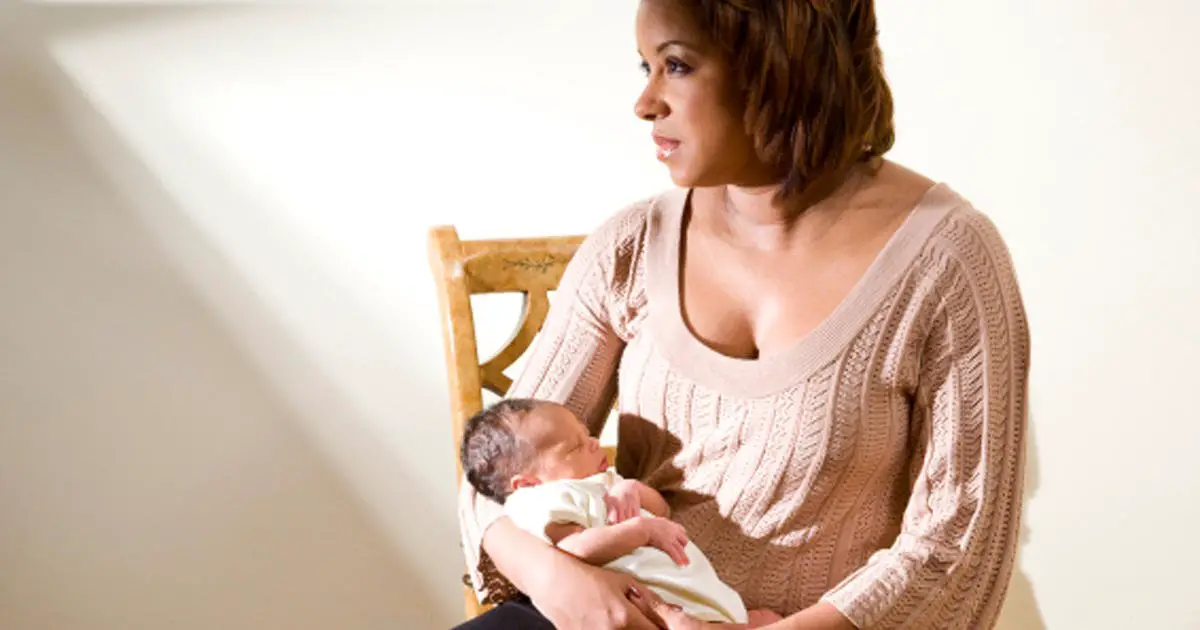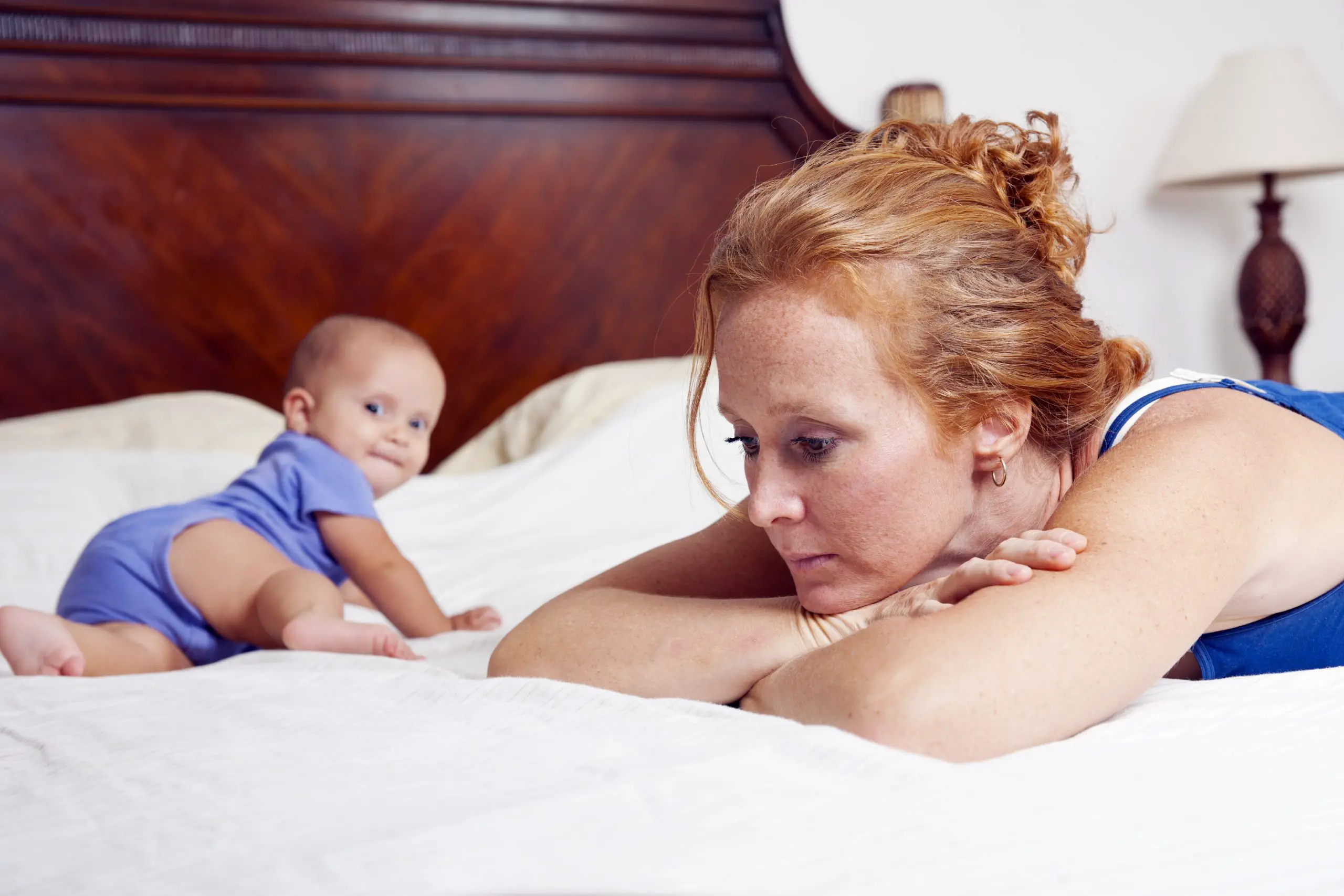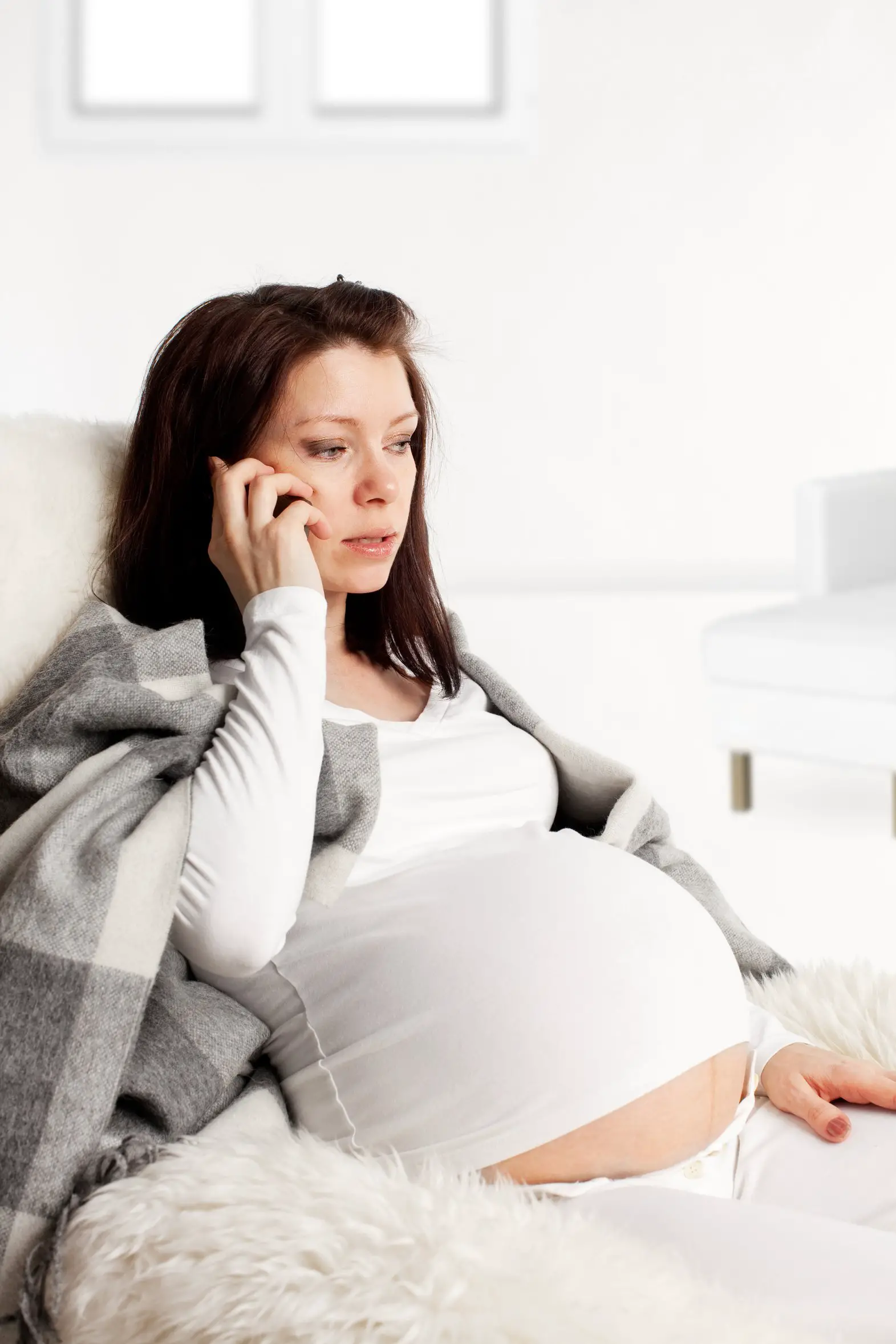What Is The Treatment For Depression
Treatment for depression usually involves a combination of self-help, talking therapies (such as counselling or cognitive behavioural therapy and medicines.
Everyone is different, so treatments that may work for some people may not work for others. Your doctor will help you decide whats best for you. You will probably also be referred to a perinatal mental health specialist and will be monitored more closely during and after your pregnancy.
The treatment you have will be your decision. Your healthcare professional can help you by talking to you about what youd like to do and explaining the risks and benefits of all options.
They will also talk to you about:
- whats best for your stage of pregnancy
- any risks medication may pose to your baby
- the risk that you might become unwell again without medication
- how bad your symptoms are
- whether you have had the condition before
- how well the medication has worked for you so far, if you are already taking it.
If the recommended treatment is antidepressants, your doctor will discuss the risks of the treatment to your baby, including:
- what is known about their safety during pregnancy
- whether the baby may have some mild symptoms when born and whether breastfeeding may reduce the possibility of these occurring.
If you understand the risks to you and your baby and still decide to stop medication, your doctor should talk to you about other ways to manage your symptoms. For example, they may suggest talking therapies.
Differences Between Baby Blues & Postpartum Depression
It can be hard to recognize the differences between signs of the baby blues and postpartum depression while experiencing them, but there are three large telltale signs:
-
Feeling moodiness rather than feeling sadness
-
Short-term effects rather than persistent
-
Uncomfortable but not disruptive to day-to-day functioning
If a new mom experiences the former rather than the latter, its likely the baby blues.
There is a standardized test used to evaluate new moms for postpartum depression: the Edinburgh Postnatal Depression Scale .2 While postnatal moms will likely receive this screening during their follow-up appointments, this ten-question scale is also available online.7 However, its important to remember that an online questionnaire isnt a substitute for a doctor visit and you should discuss your symptoms and concerns with a healthcare professional.
What Can I Do At Home To Feel Better While Seeing A Doctor For Postpartum Depression
Here are some ways to begin feeling better or getting more rest, in addition to talking to a health care professional:
- Rest as much as you can. Sleep when the baby is sleeping.
- Dont try to do too much or to do everything by yourself. Ask your partner, family, and friends for help.
- Make time to go out, visit friends, or spend time alone with your partner.
- Talk about your feelings with your partner, supportive family members, and friends.
- Talk with other mothers so that you can learn from their experiences.
- Join a support group. Ask your doctor or nurse about groups in your area.
- Dont make any major life changes right after giving birth. More major life changes in addition to a new baby can cause unneeded stress. Sometimes big changes cant be avoided. When that happens, try to arrange support and help in your new situation ahead of time.
It can also help to have a partner, a friend, or another caregiver who can help take care of the baby while you are depressed. If you are feeling depressed during pregnancy or after having a baby, dont suffer alone. Tell a loved one and call your doctor right away.
Also Check: What Medicine To Take To Get Pregnant
How Common Is Postpartum Depression
Mothers
About 1 in 7 women may experience depression or anxiety during pregnancy and/or the first year after childbirth.
Clinical research indicates that 13% -19% of all new mothers experience this significant, clinical condition.
Fathers
About 1 in 10 new fathers may experience depression or anxiety during pregnancy and/or the first year after childbirth.
Clinical research indicates 4%-25% of all new fathers experience paternal PPD.
Postpartum Depression Counseling In Arlington Vabethesda Md & Washington Dc

Getting Help For Postpartum Depression. Do you see the signs of postpartum depression in yourself? Do you feel guilty because you arent enjoying the first months of your babys life? Being a new mom is hard, but you dont have to struggle alone. Our skilled therapists at Postpartum Wellness in Fairfax County, Arlington County, Montgomery County, and Howard County are here to help you find joy as a new mom. Online counseling is available in Maryland, Washington, DC, and Virginia. Contact us today to begin finding your way through postpartum depression.
Recommended Reading: When Is The Best Time To Use Pregnancy Test
Postpartum Depression Is Different From The Baby Blues
Postpartum depression is depression that occurs after having a baby. Feelings of postpartum depression are more intense and last longer than those of baby blues, a term used to describe the worry, sadness, and tiredness many women experience after having a baby.
The symptoms of postpartum depression are similar to symptoms of depression, but may also include:
- Crying more often than usual.
- Feelings of anger.
- Feeling distant from your baby.
- Worrying or feeling overly anxious.
- Thinking about hurting yourself or your baby.
- Doubting your ability to care for your baby.
If you think you have depression, seek treatment from your health care provider as soon as possible.
What Causes Depression During And After Pregnancy
One might get depressed for a variety of reasons. During and after pregnancy, the body goes through a lot of hormonal changes as a woman. For example, the feminine hormones oestrogen and progesterone are produced at considerably higher levels in a pregnant womans body. However, within the first 24 hours following childbirth, these hormone levels rapidly return to pre-pregnancy levels.
In the same way, menstrual hormone fluctuations can cause comparable symptoms during and after the period these hormone changes may cause depression. A decrease in thyroid hormones generated by the thyroid gland is another probable explanation of similar symptoms in some women after pregnancy .
These hormones aid in the regulation of the bodys energy usage. Low thyroid levels can lead to irritable or sad moods, sleep and concentration issues, and weight gain. When these physical changes are combined with the dramatic changes in the mothers lifethe natural feelings of being overwhelmed with new responsibilities, pressures to be a great mom, a sense of loss about the life that the lady had beforeputs the female at risk of suffering from perinatal/postpartum depression, or, in rare cases, postpartum psychosis too.
pregnancy
Don’t Miss: How Many Days To Check Pregnancy
What Should I Do If I Have Symptoms Of Postpartum Depression
- Your baby blues dont go away after 2 weeks
- Symptoms of depression get more and more intense
- Symptoms of depression begin within 1 year of delivery and last more than 2 weeks
- It is difficult to work or get things done at home
- You cannot care for yourself or your baby
- You have thoughts about hurting yourself or your baby
Ask your partner or a loved one to call for you if necessary. Your doctor, nurse, or midwife can ask you questions to test for depression. They can also refer you to a mental health professional for help and treatment.
Postpartum Depression & The Baby Blues
Sounds like you have a case of the baby blues. This is something new moms who reported feeling depression symptoms after pregnancy might hear from doctors and well-meaning family members decades ago. We now understand that postpartum depression is a genuine medical condition that requires treatment.
But how can new moms who are feeling low tell the differences between signs of postpartum depression and more general baby blues?
You May Like: How I Treat Thrombocytopenia In Pregnancy
Signs Of Postpartum Depression
Postpartum depression affects between 10% and 15% of new moms in Canada.6 The signs and symptoms of postpartum depression closely match the symptoms of major depressive disorder, and can include:
-
Feeling depressed
-
Feeling tired all the time
-
Feeling guilt
-
Disinterest in usual activities2
-
Not bonding with the new baby4
-
Change in sleep
-
Change in appetite
-
Trouble concentrating or remembering details
-
Thoughts of suicide*
Theres a third, very rare type of postpartum psychiatric illness called postpartum psychosis this only affects one or two women out of 1,000 new mothers.2Its unlikely that new moms will develop postpartum psychosis, especially if you dont have a previous diagnosis of bipolar disorderwith which it shares similarities.2
Are There Natural Remedies For Postpartum Depression
Postpartum depression is serious and not something you should attempt to treat without a doctors input.
Along with medical treatment, natural remedies such as exercise and getting the right amount of sleep can help improve symptoms. Massage, meditation, and other mindfulness practices may help you feel better. Maintain a diet high in nutrients, but low in processed foods. If youre not getting the nutrients you need in your diet, ask your doctor to recommend the right dietary supplements.
Don’t Miss: How To Know That You Are Pregnant Without Test
If I Am Taking Antidepressants Can I Breastfeed My Baby
Breastfeeding provides many health benefits for babies. It also helps mothers and babies bond. If you are taking antidepressants, small amounts will come out through your breast milk. But studies have shown that children exposed to these drugs through breast milk have not had problems.
Even if you are taking antidepressants, you can breastfeed your baby for as long as you wish. Stopping an antidepressant during breastfeeding may cause the depression to return.
Postpartum Depression In Fathers

Paternal postpartum depression has not been studied as intently as its maternal counterpart. In men, postpartum depression is typically defined as “an episode of major depressive disorder occurring soon after the birth of a child”. The cause may be distinct in males. Symptoms of postpartum depression in men are extreme sadness, fatigue, anxiety, irritability, and suicidal thoughts. Postpartum depression in men is most likely to occur 3â6 months after delivery, and is correlated with maternal depression, meaning that if the mother is experiencing postpartum depression, then the father is at a higher risk of developing the illness as well. Postpartum depression in men leads to an increase risk of suicide, while also limiting healthy infant-father attachment. Men who experience PPD can exhibit poor parenting behaviors, distress, and reduce infant interaction. Reduced paternal interaction can later lead to cognitive and behavioral problems in children.
Also Check: How To Get Fit While Pregnant
Where To Find Support For Postpartum Depression
First, consult with your OB-GYN to address your physical symptoms. If youre interested, your doctor can refer you to a therapist or other local resources. Your local hospital is another good place to get referrals.
You might feel more comfortable reaching out to others whove been through the same thing. They understand what youre feeling and can offer nonjudgmental support. Consider joining a group for new mothers. Some of them may also be living with depression, anxiety, or postpartum depression.
These organizations can help guide you to the appropriate resources:
- Postpartum Depression Support Groups in the U.S. and Canada: This is a comprehensive list of support groups around the United States and Canada.
- Postpartum Education for Parents at 805-564-3888: Trained volunteers answer the warmline 24/7 to provide support.
- Postpartum Progress: This organization has information and support for pregnant women and new moms who have postpartum depression and anxiety.
- Postpartum Support International at 800-944-4PPD : This resource offers education, online support, and information about local resources.
If you dont like one support system, its okay to try another. Keep trying until you find the help you need.
What Is Depression In Pregnancy
Depression during pregnancy, or antepartum depression, is a mood disorder just like clinical depression. Mood disorders are biological illnesses that involve changes in brain chemistry.During pregnancy, hormone changes can affect the chemicals in your brain, which are directly related to depression and anxiety. These can be exacerbated by difficult life situations, which can result in depression during pregnancy.
Recommended Reading: How To Stay In Shape While Pregnant
Coping With Postpartum Depression Tip : Create A Secure Attachment With Your Baby
The emotional bonding process between mother and child, known as attachment, is the most important task of infancy. The success of this wordless relationship enables a child to feel secure enough to develop fully, and affects how he or she will interact, communicate, and form relationships throughout life.
A secure attachment is formed when you as the mother respond warmly and consistently to your babys physical and emotional needs. When your baby cries, you quickly soothe him or her. If your baby laughs or smiles, you respond in kind. In essence, you and your child are in sync. You recognize and respond to each others emotional signals.
Postpartum depression can interrupt this bonding. Depressed mothers can be loving and attentive at times, but at other times may react negatively or not respond at all. Mothers with postpartum depression tend to interact less with their babies, and are less likely to breastfeed, play with, and read to their children. They may also be inconsistent in the way they care for their newborns.
However, learning to bond with your baby not only benefits your child, it also benefits you by releasing endorphins that make you feel happier and more confident as a mom.
Treatment For Postpartum Depression
If you have symptoms of postpartum depression, you should see your doctor as soon as possible so that you can get started on treatment.
There are two main treatments for postpartum depression: medication and therapy. Either one can be used alone, but they may be more effective when used together. Its also important to make some healthy choices in your daily routine.
It may take a few tries to find out what treatment works for you. Keep open communication with your doctor.
Read Also: Is Kinesio Tape Safe For Pregnancy
What Treatments Are Available
Taking antidepressant medication may help alleviate the symptoms of PPD and should be combined with ongoing counseling with a therapist trained in issues surrounding childbirth. It is always important for a woman to discuss any potential side effects an antidepressant drug may have on herself or her baby. Studies show that some antidepressant medications have no harmful effects on breastfeeding infants. Psychotherapy alone may also be used to treat PPD. New mothers should be encouraged to talk about their feelings or fears with others. Socializing through support groups and with friends can play a critical role in recovery. Exercise and good nutrition may improve a new mothers mood and also aid in recovery. Caffeine should be avoided because it can trigger anxiety and mood changes.
Can Ppd Be Prevented
The U.S. Preventive Services Task Force says that certain kinds of counseling can prevent perinatal depression for women at increased risk of depression. Counseling is when you talk about your feelings and concerns with a counselor or therapist. This person helps you understand your feelings, solve problems and cope with things in your everyday life.
The Task Force recommends counseling for women with one or more of these risk factors:
- Current signs and symptoms of depression
- A history of depression or other mental health condition
- Being pregnant as a teenager or being a single mom
- Having stressful life circumstances, like low income
- Being a victim of IPV
The Task Force recommends two kinds of counseling to prevent PPD for women at increased risk:
Read Also: Can You Donate Plasma When Pregnant
Talking To Your Health Care Provider About Your Mental Health
Communicating well with your doctor health care provider can improve your care and help you both make good choices about your health. Read our Tips for Talking With Your Health Care Provider to help prepare for and get the most out of your visit. For additional resources, including questions to ask your doctor, visit the Agency for Healthcare Research and Quality.
Who Gets Postpartum Depression

Postpartum depression can affect any woman but some may be more at risk for developing it. Women who have had any kind of depression in the past or who have a family history of depression are more likely to get postpartum depression.
Other things that might increase the chance of postpartum depression include serious stress during the pregnancy, medical problems during the pregnancy or after birth, and lack of support at home.
Read Also: Can I Drink Breakfast Essentials While Pregnant
Where Can I Get Help
If you have symptoms of postpartum depression, get help right away. The sooner you get help, the sooner you will feel better. Start by talking to your health care provider . They can:
- Prescribe medicines to help you.
- Recommend that you see a psychologist, psychiatrist, or other mental health worker for treatment.
- Do blood tests to make sure something else isn’t causing your symptoms.
If you don’t have a health care provider, you can get help online at:
If you are thinking about hurting yourself or your baby or if you hear or see things that aren’t there, get help right away.
You can:
- Go to the nearest emergency room.
- Call the National Suicide Prevention Hotline at 1-800-273-8255 or reach them online.
- Contact the National Crisis Text Line: Text HOME to 741741 from anywhere in the U.S., anytime, about any type of crisis.

